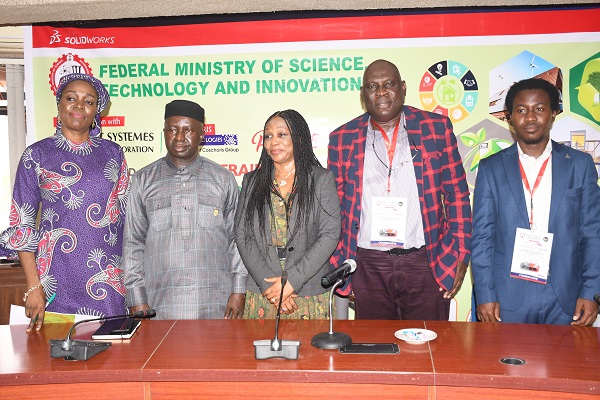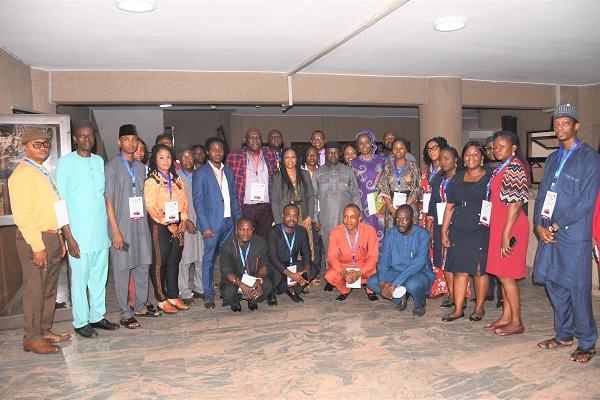
The Federal Government has announced that the National Policy on Methanol Fuel Production Technology aims to reduce carbon emissions in Nigeria as part of the country’s Nationally Determined Contribution (NDC) under the Paris Agreement.
The permanent secretary of the Federal Ministry of Science, Technology and Innovation (FMSTI), Mrs. Monilola Udoh made this announcement during the opening ceremony of the training on the implementation of the National Policy on Methanol Fuel Production Strategy using Dassault Systems SolidWorks Technology today (February 28, 2023), in Abuja.
“Nigeria has the 9th largest proven natural gas reserves in the world, with approximately 200 trillion cubic feet. However, only 25 per cent of these reserves are currently being developed, and the country has not benefited from the raw materials value-chain industry catalysation in a similar manner as some OPEC member states, where in-country human capacity building and industrialization have been by-products of the exploitation resources.
“Due to a lack of utilization infrastructure, the country still flares billions of cubic feet of the natural gas it produces. With the country’s commitment under its Nationally Determined Contribution to cut emissions by 47 per cent in the strategic sector linked to the nation’s continued economic survival, the government recently issued the National Policy on Methanol Fuel Production Technology.
“The oil and gas industry is the backbone of the Nigerian economy, but with the shift towards renewable and clean energy sources, it is imperative that Nigeria diversifies its energy sources. Methanol fuel production is a viable option that has the potential to benefit the Nigerian economy and environment in several ways. If appropriately implemented, it will facilitate the efficient and effective utilisation of the country’s gas resources, complement the Federal Government’s efforts to commercialize flared gas, and reduce associated environmental pollution,” she said.

Udoh elaborated that methanol is a clean-burning fuel that is gaining traction globally as a viable alternative to fossil fuels. Nigeria, being one of the largest oil-producing nations and having the largest natural gas reserve in Africa, must explore alternative energy resources, and methanol fuel production is an excellent option.
She stated that the implementation of a technology strategy for methanol fuel production in Nigeria will require the use of advanced software tools such as SolidWorks. The ministry is collaborating with Messrs Coscharis Technologies Limited to host this training on the use of Advanced Manufacturing Technologies (AMT) software and SolidWorks solutions to drive projects and programs in the Ministry. SolidWorks is a computer-aided design (CAD) software that enables engineers to create 3D models of products, parts, and coupling of machines. It is widely used in the manufacturing industry to design and develop new products across sectors. This technology is an invaluable tool in the implementation of the technology strategy for methanol fuel production in Nigeria. “I also strongly believe this software will enable our technical officers and engineers, like some of you present today, to design innovative products that would drive various projects and programs of the ministry and our agencies,” she said.
The ministry’s director of the environmental sciences and technology department, Dr. Peter Ekweozoh highlighted that the Methanol Fuel Policy is one of the key mandates of the ministry to drive socio-economic development in Nigeria.
He added that the ministry is coordinating the implementation of the National Policy on Methanol Fuel Production Technology, which will impact seven sectors of the economy and accelerate the implementation of the Nationally Determined Contributions (NDCs) under the Paris Agreement. These sectors include agriculture, energy, industry, water resources, waste sector, transportation, and oil and gas.
Ekweozor added that the ministry needs to come up with solutions, innovations, technologies, and scientific tools that will enable the country to implement all these conventions under the Paris Agreement, particularly the NDCs and “avoid increasing the nation’s carbon footprints”.


